Isn’t sailing the most eco-freindly form of transport? Perhaps it is, but you can still harm the planet’s ecosystems, and its local communities while out sailing.
We left the Netherlands in 2016 for a sailing trip around the world in search of solutions for today’s sustainability challenges. If you are living aboard, then you can have a positive effect on the places you visit by following our top ten ways to sail sustainably:
1. Use your sails
This may seem obvious, but take the time to sail and make the most of the wind – it’s a clean and free form of energy – even when this means waiting for a good weather window, or daring to tack upwind. If the wind abandons you but the waves don’t, and the slamming of your sails against the rigging makes you want to pull your hair out, just take the sails down and wait for the wind to return. The rewards are plentiful; you’ll get a sense of accomplishment and living in the rhythm of nature, and you’ll also have lower fuel bills and fewer emissions. And in the end, you may even save time when it comes to refuelling – especially in remote places where fuel is hard to find. Finally, avoid an overambitious timetable and don’t make appointments that commit you to a specific time and place.

2. Harvest the sun and wind for electricity
There is usually sun or wind, and often both. Charging your batteries with renewable energy is rewarding and triggers you to save energy. It also helps to limit the amount of motoring required to keep your batteries full. If you need an engine replacement, consider an electric engine combined with a propeller generator. These new systems are becoming increasingly mainstream and affordable.
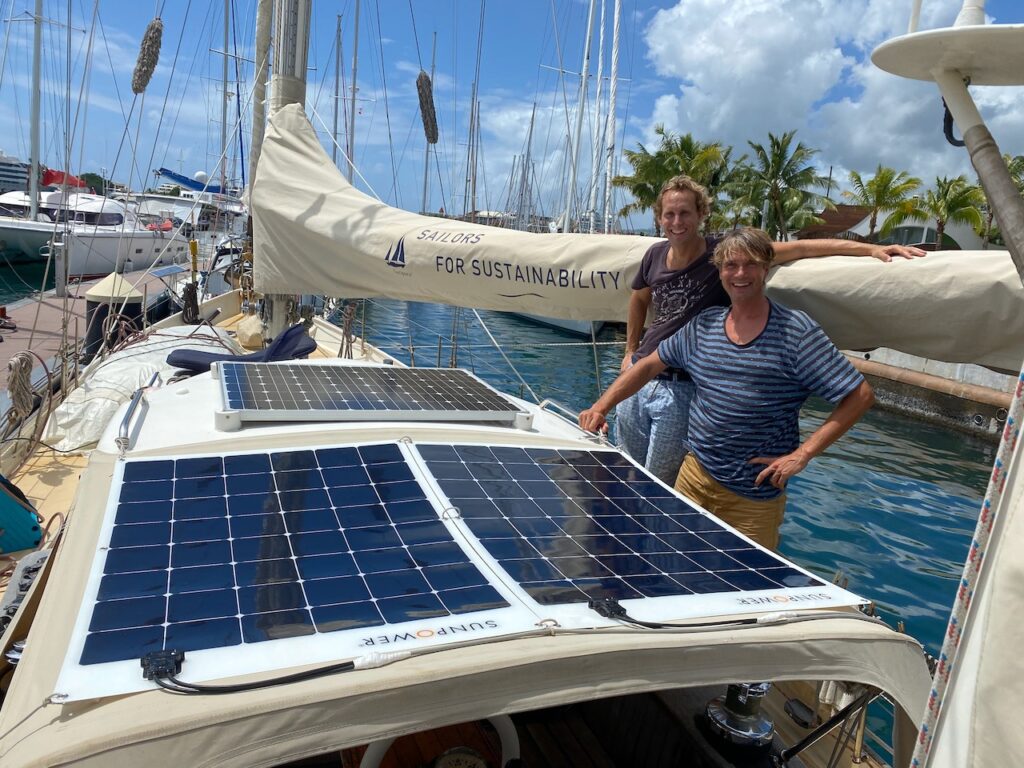
3. Paddle and hike
Our inflatable sea kayak has covered many more miles than our dinghy has with its electric outboard. We have found that paddling or rowing to shore is perfectly doable, even in remote places like Patagonia.
By paddling, you avoid the need to carry gasoline, which is explosive, smelly, expensive, polluting, and generally has no use except in an outboard engine. You’ll also make less noise!
Once ashore, our favourite way to get around is to hike. Isn’t slowing down and getting more in sync with nature the whole point of cruising? So why the rush? When travelling slowly, the most intimate encounters with nature and the locals become easier too.
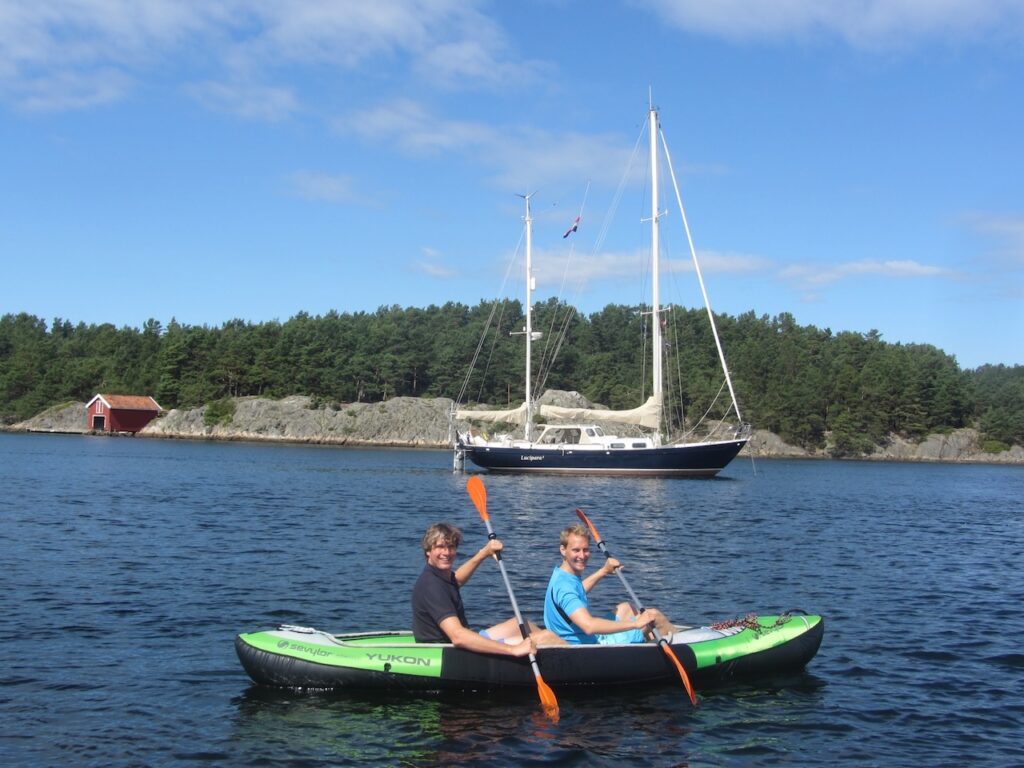
4. Use biodegradable products
Be mindful of the environmental impact of products you use on the boat since a lot of them end up in the water. Quick wins are biodegradable cleaning products (always avoid bleach!), shampoo, and shower gel. Ecostore and similar brands offer ranges that are perfect for use on sailboats. Finding unbleached, biodegradable toilet paper is more challenging, so when you do find it, hoard it!
Aside from cleaning products, there are other ways to avoid pollutants. We have had good experiences with Seajet poison-free antifouling paint and Laboratoires de Biarritz marine-friendly sunscreen. Prefer flags made from cotton or another biodegradable material, as polyester versions end up as microplastics as they wear and tear. Use LEDs and solar-powered lights (e.g. for outside). Use energy-saving kitchen tools like a “wonderpan” (a Dutch invention) to make bread, a thermos for keeping coffee and tea warm, and a pressure cooker.
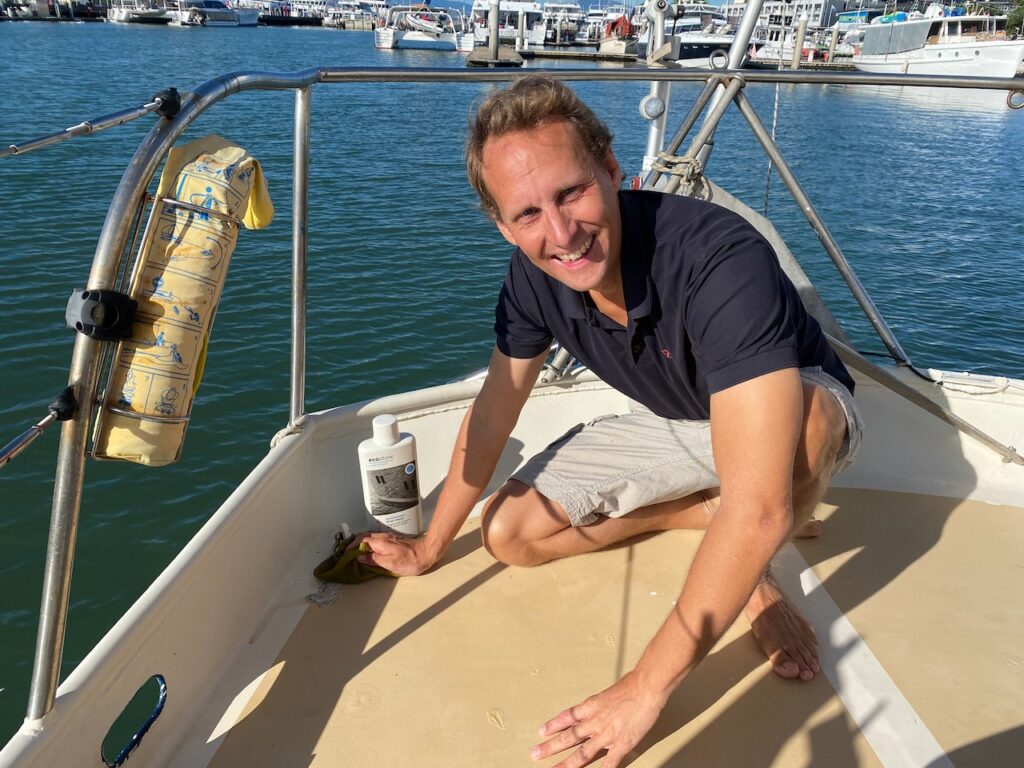
5. Reduce and recycle waste
Take your own reusable bags when buying fruit, vegetables, and groceries. Packaging-free stores are opening up in more and more places, allowing you to fill your own containers and reduce waste, so be prepare to take your own food containers too.
When it comes to waste you cannot avoid, separate glass, plastic, paper and cans from the rest in different coloured bags. In many places, it is possible to recycle it via the local waste recycling streams (tip: check noforeignland.com to find recycling bins near you). We normally throw organic waste in the sea as it is food for marine life. When we are in a marina or anchored close to a beach we bring it ashore to have it composted.
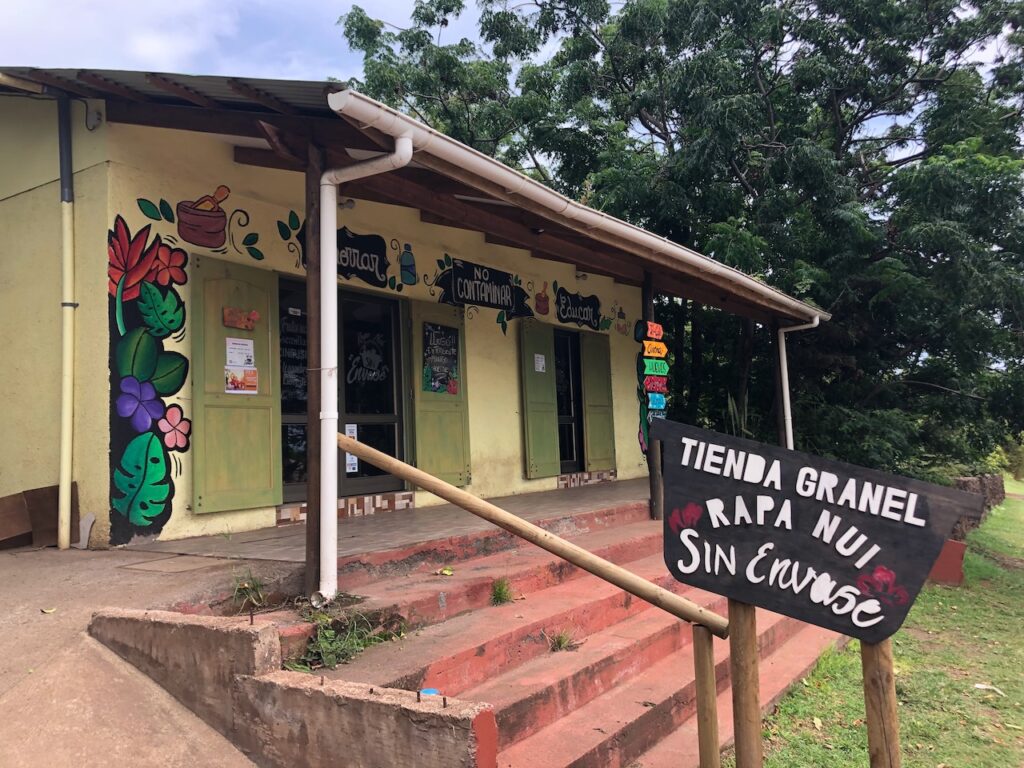
6. Eat local and plant-based Food
When compared to imported products, local food has lower transportation costs, fewer emissions and stimulates the local economy. Plant-based foods like beans, lentils, peas, chickpeas, nuts and raisins require far fewer natural resources to produce compared to meat – and are animal friendly. Vegetables are also cheaper, easier to stock up and delicious!
When you buy directly from the local fishermen, farmers, or bakers, you reward the people who do most of the work. They can support their families and your money circulates in the local economy. Buying produce at the street market also supports diversity and usually offers better value for money. And of course, bring your own reusable bags so you can politely refuse plastic bags!
7. Watch where you anchor
A good anchor keeps you off the reef so can sleep at night even if it blows thirty knots. Yet often, the bottom on which you drop the anchor is not always all sand or mud. Coral heads tend to grow in patches and your anchor and chain can damage them if you are not careful. So look for a sandy spot or, where available, use a mooring. If the sandy spots are too small for your anchor chain to move freely over the bottom, use fenders to keep your chain floating and clear of coral heads.

8. Join or organize beach cleanups
Return nature a favour and pick up plastic litter. You’ll also meet inspiring and engaged people who decide to join. Take fellow cruisers along – you’ll be surprised how fanatic people get once they start picking up litter.
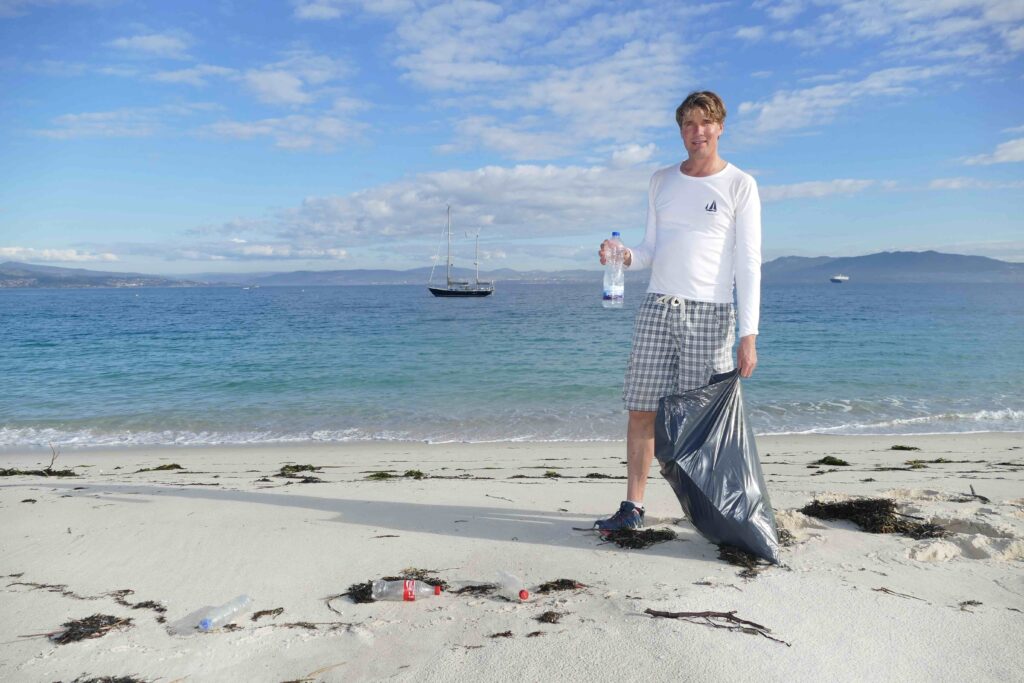
9. Respect wildlife
Cruising allows you to get into uniquely beautiful natural environments. Be mindful about this and respect the creatures that you are enjoying. Keep your distance, especially when the next generation is involved, like with nesting birds or whales with calves. If you fish, respect local regulations and don’t take more than you can eat.

10. Help others
Share tools, books, food, and tips (such as on noforeignland.com, of course!), and employ your skills to help others. Learn from each other and reward generosity from locals with things that are useful to them, for sustainability is not only about the environment but also the society we live in!
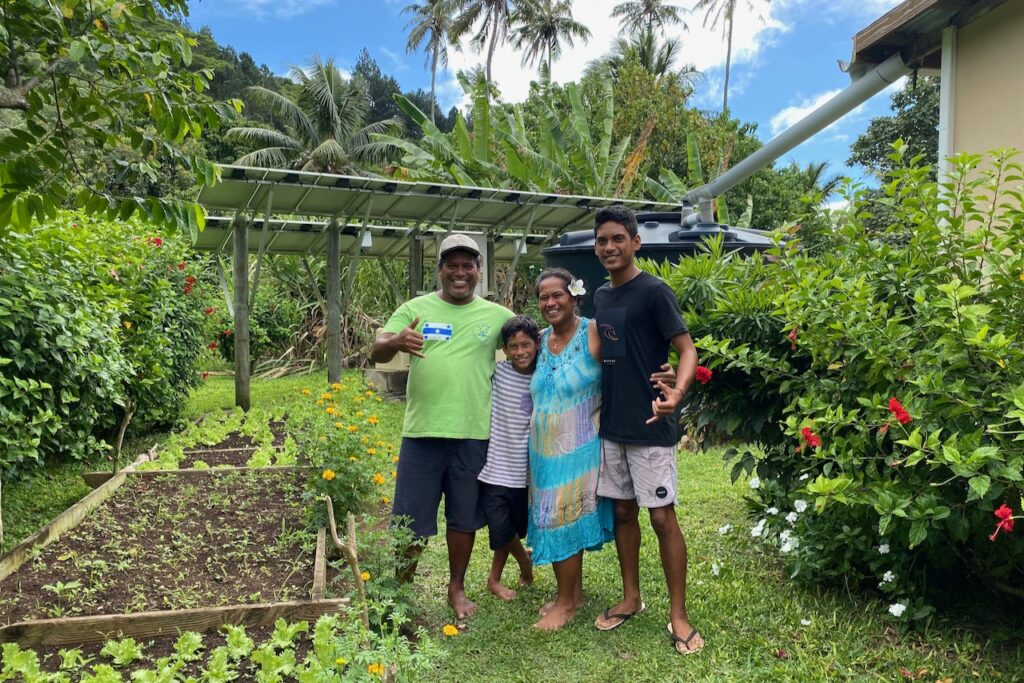
Editorial note: the authors first published this article on noonsite in 2020. They revised and updated it in 2023 for publishing here.

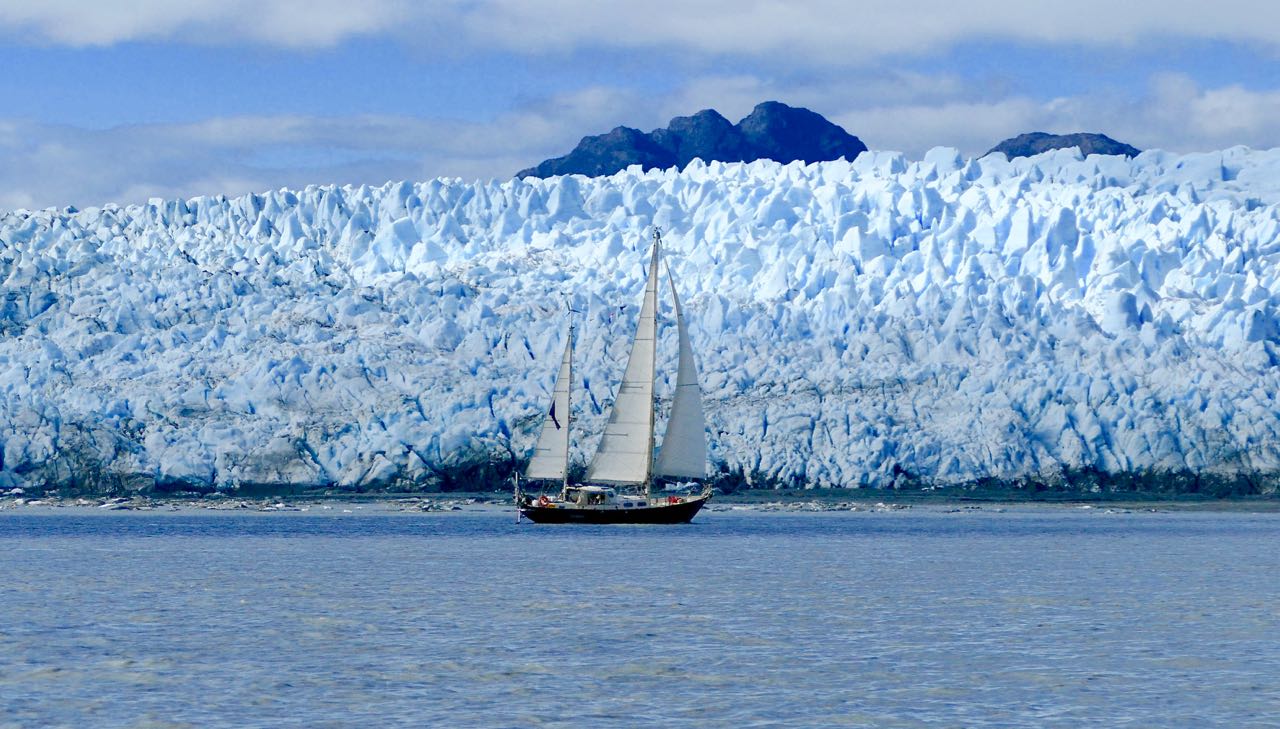





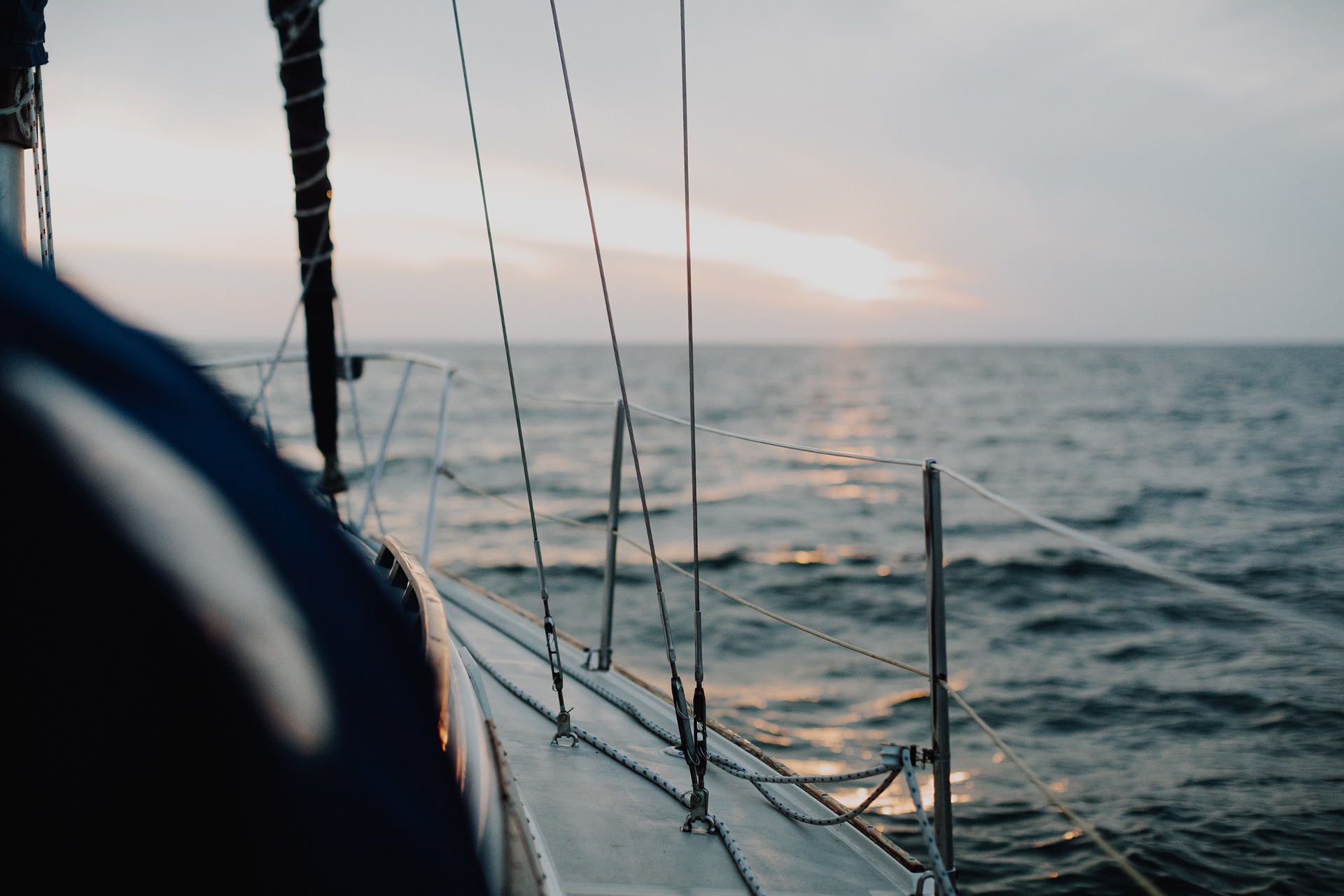

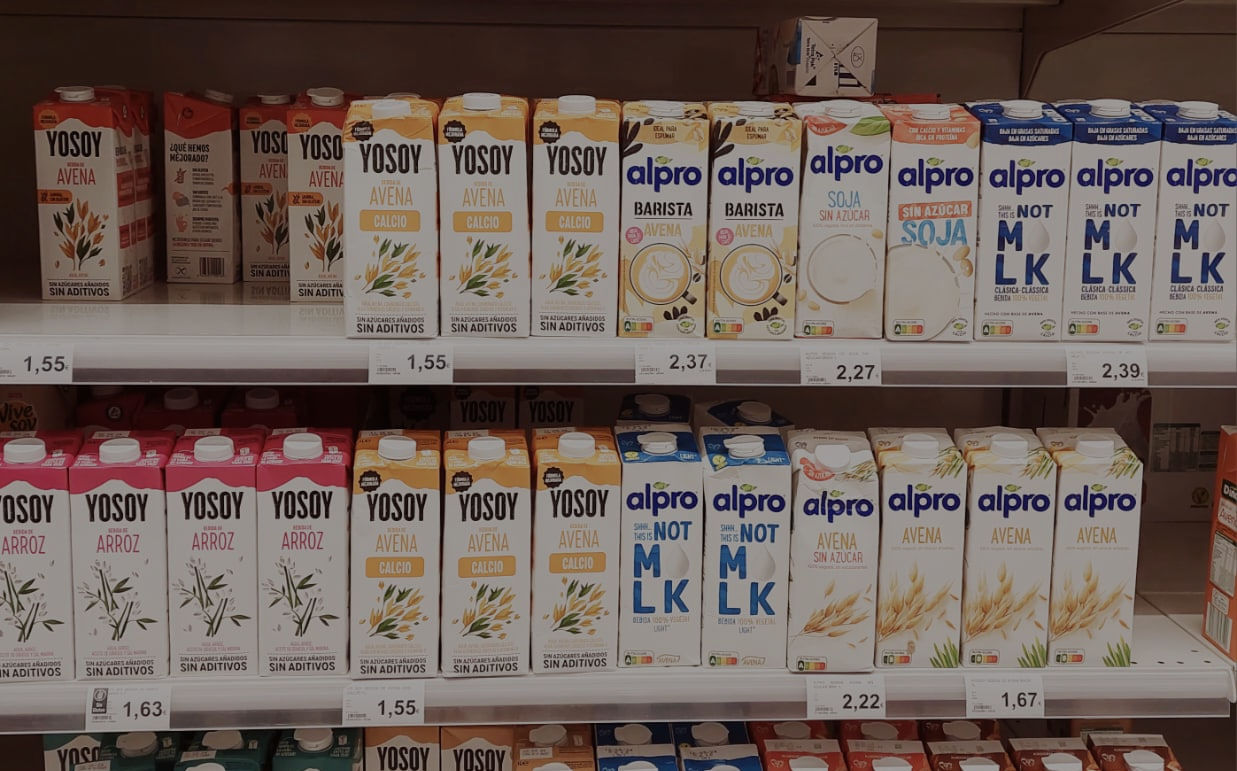
We regularly buy local too. The food always tasted fresher and we like to think we’re helping the local economy. Bravo!